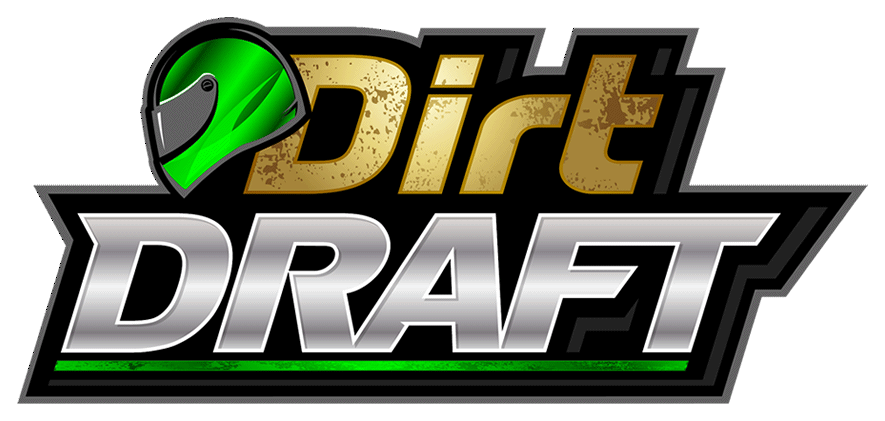
DirtonDirt.com exclusive
Fellow racers treasure Head’s generous legacy
By Joshua Joiner
DirtonDirt.com staff writerDale McDowell’s memory of his first encounter with Mike Head some 40 years ago is a bit fuzzy. It was likely at one of the red-clay Georgia dirt tracks where a young McDowell watched as Head in his famous orange No. 54 car emerged as one of the top drivers in the early days of Dirt Late Model racing on his way to becoming a legend in the sport. | Slideshow
Although the 54-year-old Chickamauga, Ga., driver can’t recall the exact time and place of his first face-to-face meeting with Head, he certainly has a lasting impression.
“I can remember as a kid watching him race at Dixie and Rome and other places and when you seen him he stood out because he was such a big guy,” McDowell said. “He could be kind of intimidating when you first saw him, and his handshake, you could never forget it. Anybody that ever shook his hand will remember that great big squeeze from that great big guy.”
Like most who encountered Head during the burly Georgian’s successful racing career that stretched from 1968 to 2011, McDowell quickly realized that Head's mammoth build and overpowering handshake couldn’t have been at greater odds with his friendly personality and laidback demeanor. Always quick to offer words of encouragement and willing to lend a helping hand to a fellow racer in need, Head may have caught people’s attention with his large size, but he won them over with his kindness and generosity.
“He was a big guy and a fierce competitor on the racetrack,” said McDowell, who after launching his own career in the mid-'80s competed against Head in the Southeast throughout the 1990s before going on to Hall of Fame success himself. “But off the track, he was a gentle giant. He was really one of the nicest guys you’d ever meet.”
The amiable Head, who claimed more than 650 feature victories during his racing career, died Monday at his Ellenwood, Ga., home after a lengthy health crisis. He was 69.
While Head certainly made a warm impression with many of the fellow racers, fans and race officials he encountered throughout his career, he was by no means a pushover on the racetrack. With numerous championships and major victories, including the 1991 Southern All Star title and the 1997 Rick’s Furniture Racing Series title, Head earned a reputation as a hard racer and a frequent winner on his way to a successful career that earned him a place in the National Dirt Late Model Hall of Fame in 2010 and the Georgia Racing Hall of Fame a year later.
While Head’s $12,000 victory in the 1990 North-South 100 at Florence Speedway in Union, Ky., stands among his richest and most noteworthy triumphs, it was the Southeastern tracks of Georgia, Alabama, Tennessee and Mississippi where Head built his legend.
Among the tracks where Head was a frequent visitor and winner was Talladega Short Track in Eastaboga, Ala., where he impressed longtime track promoter “Preacher” Lynn Phillips with both his talent and sportsmanship.
“He was the kind of racer who might knock a wheel off your car, but if he did he’d help you put it back on after the race,” Phillips said. “He was nice guy, but he gave it his all every race. There’ve been a lot of drivers come out of Georgia with a lot of talent … there’s a lot of them from the '80s, the '90s, and still today, but Mike Head was one of the best.”
In a career that began before Late Model racing’s modern era, Head’s early years of racing came behind the wheel of Ford Fairlanes and Chevrolet Corvairs and produced multiple championships at Senoia Raceway and West Atlanta Raceway. As Late Model racing evolved out of its stock car beginnings, Head became a pioneer in the days of self-built cars and in-house experimentation before established chassis builders and parts manufacturers became the norm. It was Head’s dedication to craft and his hard work in the shop during those years that most impressed McDowell.
“Those guys from that era were simply amazing with the things they accomplished with the tools they had to work with,” McDowell said. “Back when he was really becoming known and I was just coming up, it was a lot of handcrafted stuff. Back then, you had to be more hands on.
“When I started in the '80s, it was kind of making a transition to where there was some manufacturers out there and you could go buy the parts and pieces. But those guys like him that came up without all that … the reason they were in racing is because they really loved it. They were building stuff in the shops, parts and pieces and control arms, just making stuff work with their craftsmanship.
“You have to appreciate what they were doing back then because now, if a guy wants to go racing, you pick up the phone and call and there’s a lot of awesome chassis manufacturers out there that’ll put you right in a car and it’ll be ready to go. Back in those days, just knowing where he come from and what he accomplished, it’s pretty impressive the way he did it.”
Head’s association with the sport’s early days extends well beyond his aptitude in the race shop. To many of the sport’s longtime participants, he represented a throwback to a time when the sport was simpler, a time when pit areas were filled with pickup trucks and open trailers instead of large haulers with lavish living quarters. Clint Smith, a protege and close friend of Head’s, has fond memories of that time period.
“I had so many memories with him,” said Smith, the 55-year-old Senoia, Ga., racer who first became close to Head as a youngster in the '70s when Head worked with Smith’s father, Roscoe Smith, building race cars. “Things were different back then. I remember sitting up on the hood of his truck one night after a race at Coweta Park in Newnan in the early '80s with a loaf of bread making bologna sandwiches. Nobody does that stuff anymore. Just three or four drivers and crew guys hanging around and making bologna sandwiches right there on the hood of his truck.
“Things like that don’t seem like anything special when it’s happening, but you remember those types of things when someone passes away. I have a lot of memories like that from back in those days, and Mike Head, he was in a lot of them.”
Of course Smith has plenty of on-track memories with Head, too. After growing up idolizing Head nearly as much as he did his own father, Smith began his racing career in the '80s and soon found himself often competing with Head and other Georgia legends. It was when Smith finally beat Head that he felt he was headed in the right direction as a driver.
“I came up behind him racing, so I learned to race following what he done,” Smith said. “I had to race with him all my life just about everywhere I raced. To get a win I had to beat the best between him and Leon Archer … They were tough customers and it seemed like I had to race both of them every week when I was coming up.
“I remember those first times I would outrun him and just how much it meant. I thought I had accomplished something big, even though it was just a local race or something. But it showed me I might be able to be a big-time racer like him one day.”
Eventually as their career arcs intersected and headed in different directions, Smith began outrunning Head more often than not. Smith distinctly remembers he gained an upper hand on Head. It was during one of the three straight Alabama State Championship races Smith won at East Alabama Motor Speedway in Phenix City, Ala., in the early 2000s when, after patiently stalking the leading Head, Smith overtook his aging mentor on his way to winning.
“I won one of my Alabama State Championship races after following him for 90 laps,” recalled Smith, who went on to become a regular on the World of Outlaws Morton Buildings Late Model Series in its inaugural season in 2004 and followed the series for 11 years. “He wore his right-rear tire out and I finally snuck by him with about five (laps) to go.
“That’s one of my highlights just because to beat him and to do it like that — being patient and letting him run from me for a change — I think that was a turning point in my career … After that I got where I was maybe beating him more than he was beating me.”
It was around that time in the early 2000s, as opportunities to drive top equipment became scarce and sponsorship money became harder to come by, that Head’s on-track performance began to decline. After winning four of the last five of his 24 career Southern All Stars victories in the 2000 season, Head went winless on the series from 2001 through 2003.
But Head, who had been a full-time racer since the '70s, still forged ahead trying to continue making a living doing the one thing he had known for so many years. Former Southern All Star Series director Kelley Carlton saw the hardships that Head faced in those times, and felt that Head’s loyalty to series founder B.J. Parker played a large part in keeping him on the series well past his prime.
“I know that there were many times in those later years that he came to the racetrack and had to make money racing in order to get back home,” said Carlton, a Southern All Star official from 1998 until 2010. “Things got really lean for him, but he wouldn’t miss a race. He was so loyal to B.J. that he would do whatever he could to get to the next one.”
Head’s determination paid off in 2004 when he landed a ride that put him back in quality equipment for the first time in years. He made good on it, too, claiming one final Southern All Star victory, his last on any Super Late Model tour, that season at Talladega.
“I remember at the end of the 2003 season, he got to the point where he wasn’t going to have a way of getting to the racetrack the next year,” Carlton said. “Things were tough for him financially and he didn’t have much sponsorship stuff coming in. But he got a ride for that year (in 2004) and was finally back in good equipment instead of the 7- or 8-year-old stuff he’d been running.
“It was obvious when he got in that ride that he hadn’t forgot how to do it, he just hadn’t had the equipment. When he won that race that year, I can remember how excited he was in victory lane. It was almost like seeing somebody win for the first time. He was so happy in victory lane that night.”
Head’s 2004 resurgence essentially marked the end of his touring days, although he did run a handful of races for Augusta, Ga., car owner Jack Starrette in 2006 and 2007. It was during that time that Head met a teenaged racer who would eventually join him on the list of standout racers to come out of the Peach State: Brandon Overton.
Overton drove a Crate Late Model for Starrette at that time and helped as a crew member on the team’s Super Late Model that various regional racers drove. While quite a few drivers passed through Starrette’s shop during Overton’s time with the team, Head certainly stood out.
“The biggest thing that I noticed when I met him was how big he was,” said Overton, who wasn’t yet old enough to have a driver’s license when Head first came to race for Starrette. “I just remember hanging around at Jack’s and working on cars and watching them work and stuff. He was so damn big. I just remember thinking, 'Dang, I’d sure hate to make him mad ‘cause he could probably hurt somebody if he wanted to.’ But really, he was just so nice. He was a damn good guy.”
Now 29 and approaching superstar status in his own career, Overton of Evans, Ga., remembers well his time working with Head.
“You could just tell that he was a hard-core racer,” Overton said. “When I was growing up people would always come in and drive for Jack and they would always have some kind of trick. One guy would have some trick shocks and then this other guy would have some other trick stuff when he came and drove. When Mike showed up, it was just Mike. He got in there and worked on the car and still went out and run good. It was just neat because I was young and just starting my career and I just watched and helped where I could and tried to learn.”
Overton’s relationship with Head came full circle in 2020 with his victory in September’s Michael Head Jr. Memorial at Senoia (Ga.) Raceway. The long-running race began at Talladega in 1998 as a tribute to Head’s late son who was murdered the previous year. The event, which also served as a fundraiser for Head’s granddaughter Kayla, was always special to Head. Even after his own racing career ended in 2011, he made a point to continue attending each of his son’s memorial races and was known to greet the race’s winners in victory lane with a hearty handshake and occasionally a bearhug.
In a 26-victory season that featured three Lucas Oil Late Model Dirt Series victories and six World of Outlaws wins including the $50,000 USA Nationals at Cedar Lake Speedway in New Richmond, Wis., Overton had plenty of big moments in 2020 that could’ve easily overshadowed a $4,054 Southern All Stars victory, but winning the Michael Head Jr. Memorial was still a meaningful accomplishment.
“It was special to me because they’ve been running that race forever and I had never won it, but it definitely meant even more because Mike was there for it,” Overton said. “I remember him telling me after I won that Jack would be proud of me, which was cool because I had just started racing Late Models when he came around back then. Hell, I was literally still learning how to get the car in gear and work the transmission and stuff. He knew me when I wasn’t anybody.”
Head's passion for connecting with younger racers left a lasting impression, and Talladega's Phillips noted that Head’s legacy in the sport goes well beyond his on-track accomplishments.
“Mike went through so much in his lifetime that he had to be a man of faith and a man of strong will,” Phillips said. “I think he used that to help a lot people. He’d always pray at the drivers' meeting and people would come around and shake hands with him, and he was always willing to help anyone. He helped so many young racers.
“I would put him in the top 10 of racers all time. I know it’s hard to make a list like that, but all the people that he helped and touched in different ways, I think that really counts for a lot.”

















































